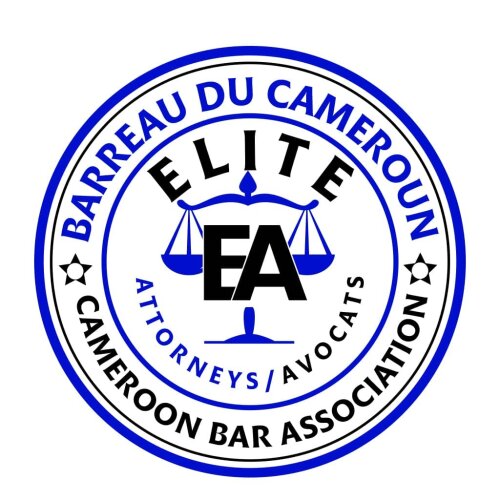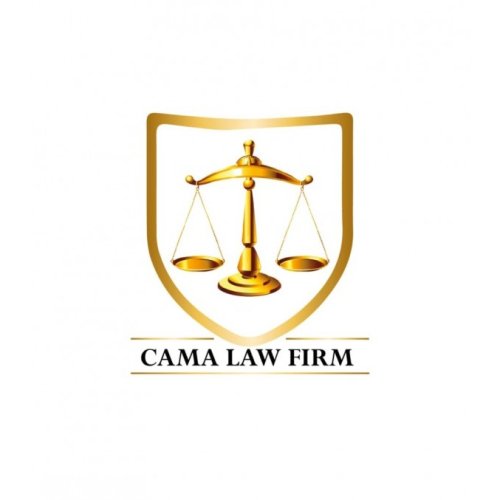Best State, Local, and Municipal Law Lawyers in Cameroon
Share your needs with us, get contacted by law firms.
Free. Takes 2 min.
Or refine your search by selecting a city:
List of the best lawyers in Cameroon
About State, Local, and Municipal Law in Cameroon
State, Local, and Municipal Law in Cameroon governs the activities and administrative structures of sub-national governments within the country. This legal framework is vital for regulating the relationships between the national government and city or town councils, local administrators, and community leaders. These laws help maintain order, provide public services, manage resources, and ensure community development within Cameroon’s various regions. They cater to urban planning, taxation, public health, local road maintenance, and more, allowing for decentralized governance and local autonomy.
Why You May Need a Lawyer
Legal assistance in State, Local, and Municipal Law may be necessary when individuals or organizations face issues such as disputes over local government decisions, zoning and land use conflicts, property tax assessments, or compliance with municipal regulations. Businesses might require advice when bidding for local government contracts or adhering to municipal codes. Additionally, individuals might seek legal help for resolving issues with local authorities or understanding their rights and responsibilities under municipal laws.
Local Laws Overview
In Cameroon, local laws are often based on the country's Civil Law system, influenced by French legal principles. Key aspects of local laws include:
- Decentralization: Following the policy of decentralization, local governments have been granted autonomy to manage community affairs, including economic development and local infrastructure.
- Land Use and Zoning: Regulations define land use patterns for residential, commercial, agricultural, and industrial purposes, facilitating structured urban and rural development.
- Public Health and Safety: Local governments enforce health and safety regulations to ensure the well-being of residents, including waste management and public sanitation.
- Municipal Taxation: Municipalities levy taxes such as property taxes, which are crucial for funding local services and infrastructure projects.
- Public Participation: Laws encourage citizens’ involvement in local government decision-making processes to promote transparency and accountability.
Frequently Asked Questions
What is the role of local councils in Cameroon?
Local councils are responsible for managing local affairs and implementing policies and services that reflect the needs of their communities, including infrastructure projects, social services, and economic development initiatives.
How are municipal laws created in Cameroon?
Municipal laws are created through local council deliberations and approved by the elected representatives. They must align with national laws and the constitution of Cameroon.
Can local governments in Cameroon levy taxes?
Yes, local governments have the authority to levy certain taxes, such as property taxes and business licenses, to generate revenue for municipal services and infrastructure.
How can citizens participate in local governance?
Citizens can participate in local governance through public consultations, attending council meetings, participating in local elections, and community engagement activities.
What should I do if I have a dispute with my local council?
If you have a dispute with your local council, seek legal advice to understand your rights and potential resolutions. Mediation or formal legal proceedings may be appropriate depending on the issue.
How are land use disputes handled?
Land use disputes are often addressed through negotiation, mediation, or legal proceedings, depending on the complexity and nature of the conflict.
Are there any specific regulations for businesses regarding municipal laws?
Yes, businesses must comply with various municipal regulations, including licensing, environmental standards, zoning laws, and building codes. Legal advice can help businesses navigate these requirements.
What legal protections exist for landowners in Cameroon?
Landowners have protections related to property rights, usage, zoning, and compensation for expropriation. Understanding these rights requires awareness of both national and municipal laws.
How does the decentralization policy affect local governance?
The decentralization policy grants more autonomy to local governments, allowing them to manage local resources and make decisions tailored to their communities' specific needs and priorities.
Where can I seek legal advice for municipal law issues?
Legal advice can be sought from local law firms, legal aid organizations, or governmental legal departments specializing in State, Local, and Municipal Law.
Additional Resources
Consider consulting the following resources for more information on State, Local, and Municipal Law in Cameroon:
- Ministry of Territorial Administration: Oversees local government functions and provides legal and policy guidance.
- Local Government Training Center (CEFAM): Offers training and resources for local government officials and interested citizens.
- Chamber of Commerce, Industry, Mines, and Crafts: Provides information for businesses on complying with local laws.
- Legal Aid Clinics: Provide free or low-cost legal assistance and can help individuals understand local laws.
Next Steps
If you need legal assistance in State, Local, and Municipal Law, follow these steps:
- Identify your specific legal issue and gather all related documents and information.
- Consult with a lawyer experienced in State, Local, and Municipal Law to explore your options and potential outcomes.
- Consider alternative dispute resolution methods like mediation if appropriate.
- Stay informed about your rights and obligations under the local laws in Cameroon.
Lawzana helps you find the best lawyers and law firms in Cameroon through a curated and pre-screened list of qualified legal professionals. Our platform offers rankings and detailed profiles of attorneys and law firms, allowing you to compare based on practice areas, including State, Local, and Municipal Law, experience, and client feedback.
Each profile includes a description of the firm's areas of practice, client reviews, team members and partners, year of establishment, spoken languages, office locations, contact information, social media presence, and any published articles or resources. Most firms on our platform speak English and are experienced in both local and international legal matters.
Get a quote from top-rated law firms in Cameroon — quickly, securely, and without unnecessary hassle.
Disclaimer:
The information provided on this page is for general informational purposes only and does not constitute legal advice. While we strive to ensure the accuracy and relevance of the content, legal information may change over time, and interpretations of the law can vary. You should always consult with a qualified legal professional for advice specific to your situation.
We disclaim all liability for actions taken or not taken based on the content of this page. If you believe any information is incorrect or outdated, please contact us, and we will review and update it where appropriate.
Browse state, local, and municipal law law firms by city in Cameroon
Refine your search by selecting a city.











